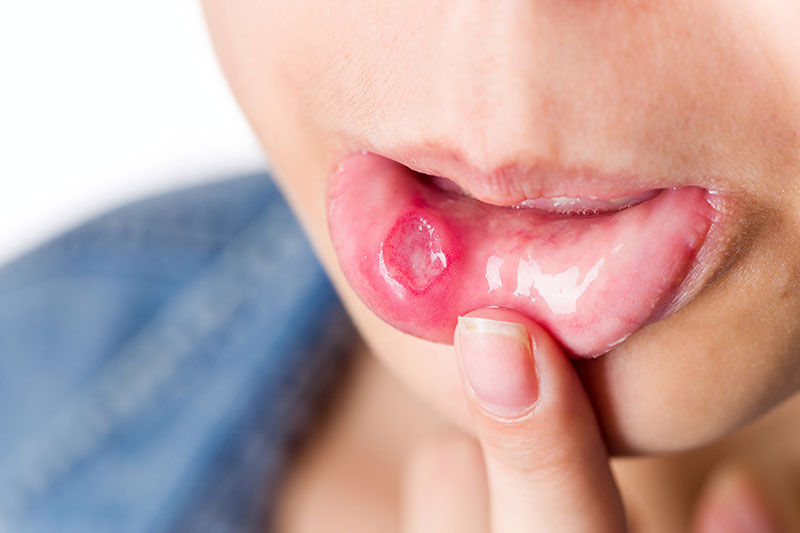“Canker sore” is the layman’s term for an aphthous ulcer. They typically appear as small, flat, white or off-white lesions on the soft tissues of the mouth such as the inner lips, the base of the gums, under the tongue and on the cheeks. They do not appear on any keratinized tissues, such as that of the top of the tongue. Canker sores differ from cold sores in that they do not appear on the lips, and they are not contagious.
What Causes Canker Sores?
There is not always an easy answer to this question. Some people are more prone to canker sores than others, and some people rarely get them. A combination of factors may cause an outbreak. Possible causes may include:
- Emotional or physical stress
- Lack of sleep or fatigue
- Sensitivity to certain foods such as acidic fruits and vegetables (tomato, lemons)
- Minor trauma from an injury or dental work
- Tongue or cheek biting
- Low vitamin b12 levels
- Use of toothpaste or mouthwash that contains sodium lauryl sulphate
- Certain oral bacteria
- Certain medical conditions such as celiac disease, inflammatory bowel diseases such as Crohn’s or ulcerative colitis, Behcet’s Disease and HIV/AIDS
Risk Factors For Canker Sores
Canker sores most commonly affect young adults and youth and are more common in females than in males. In addition, there is also a family link for canker sores, whether this is from a genetic predisposition or from environmental factors such as a similar diet or allergens.
How to Prevent Canker Sores
Canker sores are sometimes inevitable, but there are ways to reduce the frequency and severity of them.
- Avoiding foods that are known irritants (such as spicy, acidic and tart foods)
- Take a vitamin b12 supplement if you have a diet low in vitamin b12
- Reduce your stress
- Protect your mouth from irritants and injuries
- Find a toothpaste and mouthwash that works for you
- Maintain good oral hygiene
Treatment of Canker Sores
The most important factor is time. Canker sores will usually go away on their own in a week or less. If the canker sore is particularly large, it may take several weeks. Some ways to help speed up the healing or relief the symptoms are:
- Off the shelf oral or topical medications for pain relief
- Dab magnesium hydroxide (milk of magnesium) on the sore several times a day
- Rinsing with salt water morning and evening
- Apply ice to the area by sucking on ice chips

